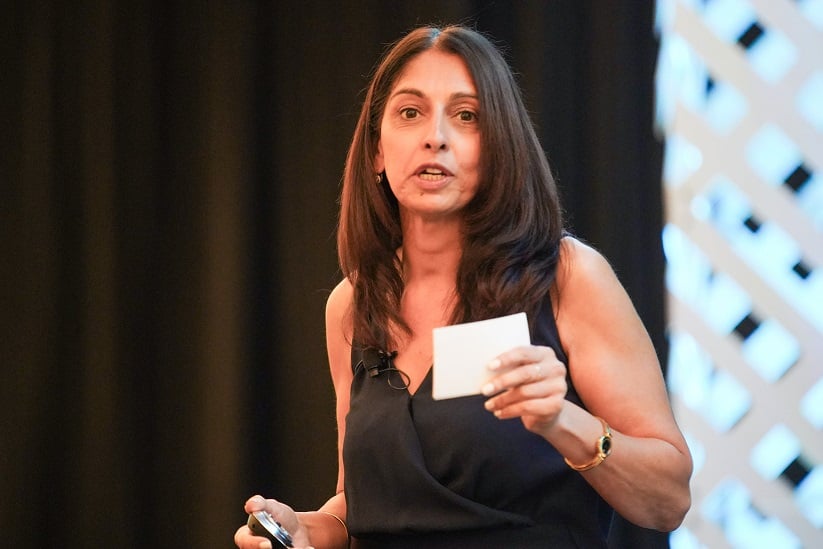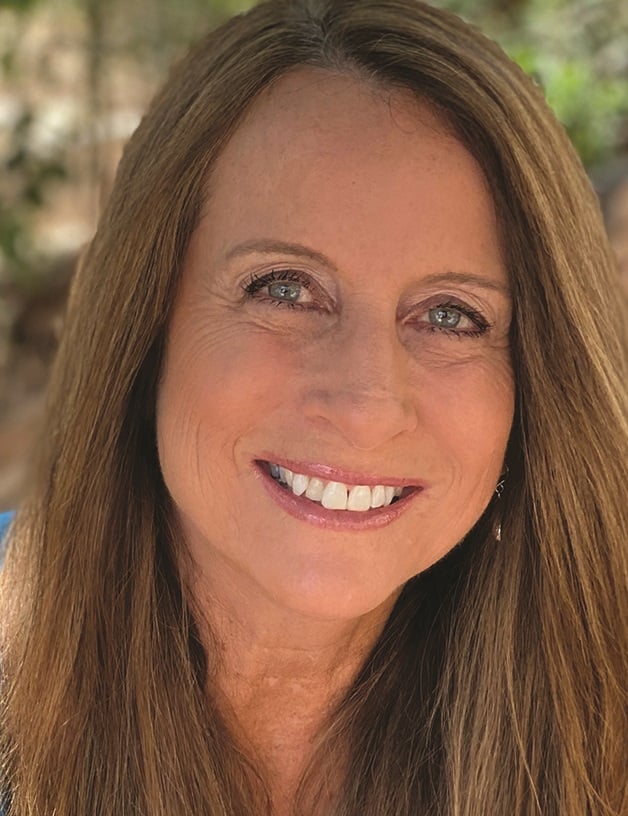Women’s Community Webinar: Failure and Finding Career Balance

Career paths, goals and unforeseen circumstances that arose along the way were the focus of discussion during an August webinar hosted by Institute for Supply Management®’s (ISM®) Women’s Supply Management Community.
A distinguished panel of guests cited difficult yet inspiring moments and pivotal learnings: Shami Anand (pictured above) of Power Your Impact, LLC and co-founder of the Women’s Supply Management Community; Bindiya Vakil, MBA, co-founder and CEO of Resilinc; Danielle Salyers MBA, CPSM, vice president strategic sourcing at Allied Solutions LLC, and Daretta Whitfield, director supplier diversity at Charter Communications.
Personal ‘Futurecasting’
Panelists provided parallels in how long-term goal setting provided the necessary foundation in charting career paths, while noting caveats. Like in business, career “futurecasting,” can lead to successful decision-making. However, with so much emphasis on the future, Anand said, “we often lose sight of the here and now.”
“Take the best path, no matter what, that will give you comfort 10 years from now and support living a life without regret,” Vakil said. But unexpected opportunities can show up, leading to a diversion from one’s predetermined life plan.
Salyers has taken a career path that is a testament to the benefits of embracing the unforeseen. Having completed higher education in accounting, she began as an office manager and eventually focused on procurement. With 11 years analyzing data, creating and uncovering process efficiencies and building better relationships, “I never imagined leading the most complex business critical category in Europe,” Salyers said — until she did.
“We are constantly changing from our experiences as we evolve, requiring consistent adapting of new circumstances, new relationships and behaviors, which makes us shift,” Whitfield said. Agility came more easily to her, she added, as her family moved every 10 months or so throughout her childhood. “Although it was hard, I learned how to quickly adapt and pivot,” she said.
Emulating Success and Chasing Dollars
As a young professional, Salyers paid attention to those who were successful; in fact, she said, “I emulated their behaviors.” But all that posturing did not serve her well when she worked at an enterprise with 18,000 people.
Exhausted from bending and contorting into what others were and losing herself in the process, it “ultimately decayed a valued relationship I had with a direct report,” Salyers said. She questioned her leadership style and the person she had become. “I created these personal barriers to avoid seeing my ‘authentic self,’ neglecting the time and energy needed to invest in my own leadership skills,” she said.
After a period of reflection, Salyers engaged what she called her personal ‘board of directors’ for support. “It’s okay to emulate the strong points of leadership in others as long as it aligns with who you are,” she said.
Now, she works from a place of authenticity, serving others to help them grow and remove their pain points to be their best. “No matter where you are in your journey,” Salyers said, “pay attention because you can learn from every single person in the room.”
Fresh out of undergraduate studies, Vakil worked in sales at a financial services company, handling short-term deposits. “The business was not what it seemed — it was a Ponzi scheme,” she said. To make matters more complicated, her grandfather had invested in the business. Six months later, the company went bust.
The embarrassment and deceptive nature of the experience drove her to pursue an MBA in finance because Vakil “didn’t want to feel that sense of failure again,” she said. From that point forward, Vakil decided, “no one who gave me money would lose money, ever.” This commitment put a lot of pressure on her career, especially when given the responsibility to raise capital. “It took me 62 pitches before I received my first ‘yes’ from high-level angel investors and other C-suite executives,” she said.
Fear of Failure
Whitfield was hyper focused on success sooner rather than later, as more financial means would be the backbone for taking care of her parents and other family members. “When I was 18, I was anxious, ambitious and driven by a fear of failure and how that would negatively impact others,” she said.
A toxic work environment had her questioning her self-worth. When faced with overwhelming adversity, Whitfield said, she would run away from it.
Vakil faced multiple challenges before realizing, “Failure isn’t a judgment against you but an opportunity to learn the ‘why,’ grow and succeed.” Admittedly, as a young adult, she was naïve and sheltered. After needing 18 months to end an abusive relationship, she experienced harassment in the workplace.
Upon completing her MBA, Vakil entered the recruitment process for a new role. “During the interview, I was asked on a date by the CFO,” she said. “I refused and was soon removed from the interview process altogether.” Upon graduation, she was the only one in her class to receive an MBA without a job.
Leading with Authenticity
Anand referred to failure as an experience. “By owning personal core values and beliefs, we can make better authentic decisions,” she said.
“It’s important to be true to yourself. Don’t compromise what’s important to you and steer clear of choosing the easy way out,” Vakil said.
Whitfield is currently at a point of reevaluation, gaining new awareness of her personal truths. She acknowledged a prior pattern of shying away from leadership and spotlight opportunities. “There’s no need to carry the weight of others or responsibilities that aren’t yours to bear,” she said. “Be aware of opportunities as they present themselves. Trust that you can figure things out and ignore the mental barriers.”
Being willing learn, Anand said, is crucial to achieving goals. “Hold yourself accountable when you lose your way, but then course correct to make it right,” she said.
Feedback is also an essential part of career growth, Salyers said: “You don’t have to accept all the feedback you get from others. Sometimes, what they offer differs from what you need to do.”
Added Vakil, “Don’t let failure define you or let you down. Learn from failure. It shapes you to become amazing.”
Self-care was discussed with a sense of urgency, as many professionals fail to make time for the practice. “Take care of yourself and enjoy the moments,” Whitfield said, adding that “we are not perfect, but we are human.”
ISM welcomes members and non-members — women and men — to be part of the Women’s Supply Management Community. For more information, visit the Community web page.


